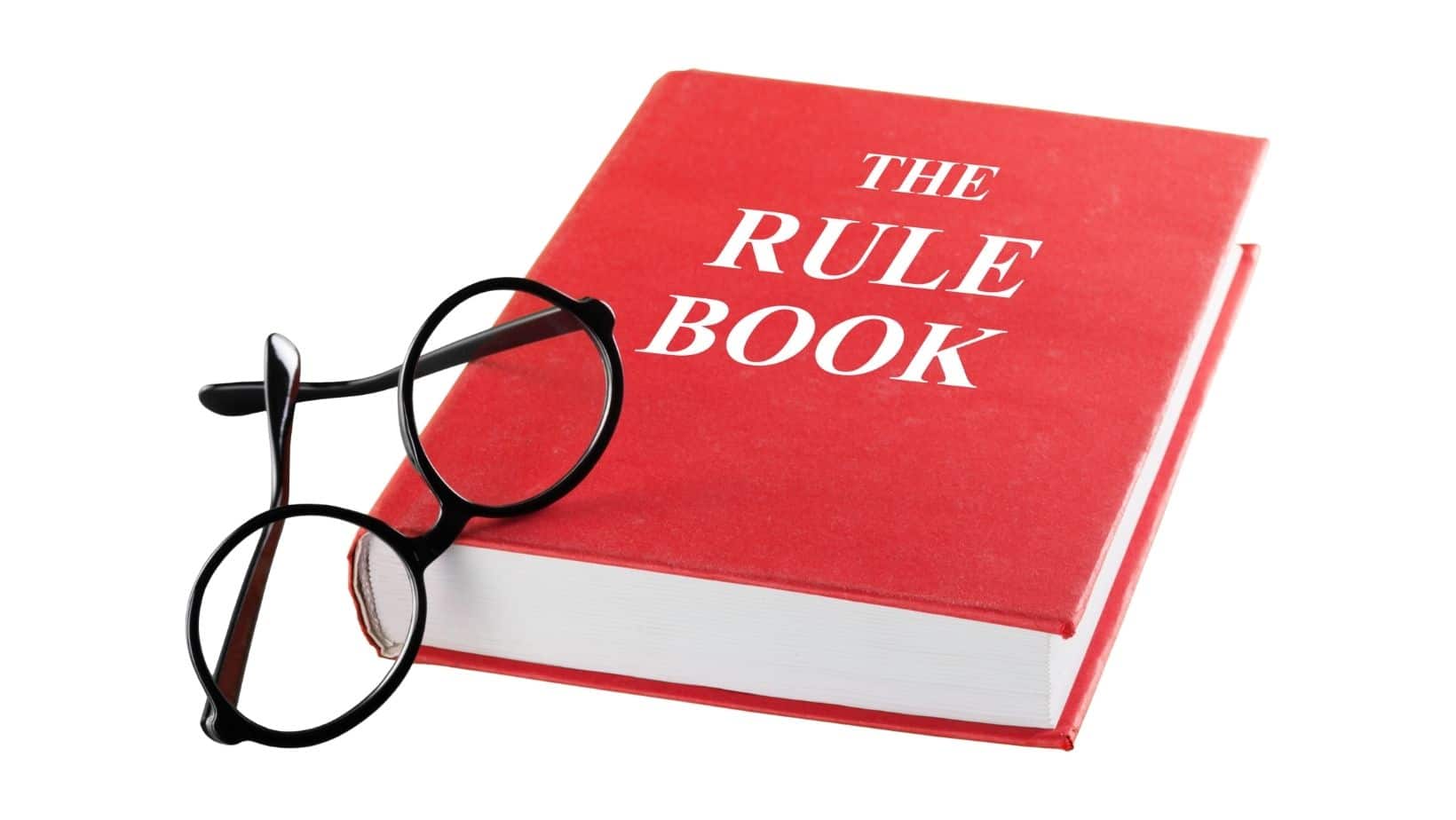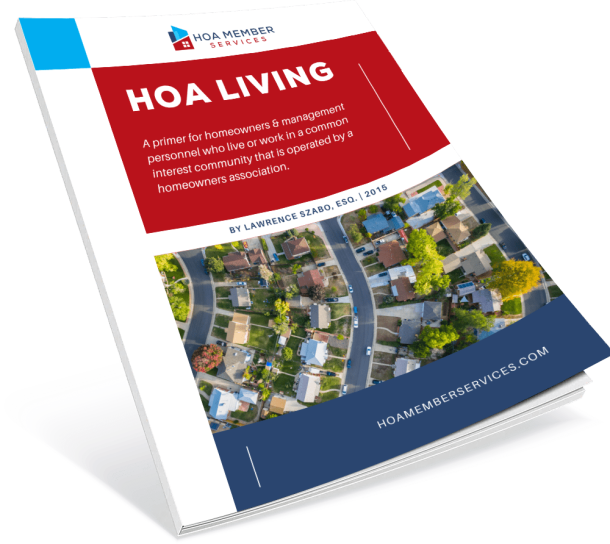Imagine signing the dotted line on your dream home, only to discover later that you can’t paint your front door the color you want, or that your beloved pickup truck isn’t welcome in the driveway overnight. These surprises happen every day because homeowners don’t know the full set of rules their HOA has in place.
The truth is, HOA rules aren’t hidden, but they’re not always easy to track down either. They shape everything from landscaping and parking to noise levels and pet ownership. Knowing where to find them can protect you from disputes, unexpected fines, and even legal headaches.
This guide will cut through the noise and show you exactly how to find your HOA rules, whether you’re already living in the community or thinking about buying into one. By the end, you’ll know how to get answers quickly and with confidence.

Understanding HOA Rules and Governing Documents
Before you can figure out how to find HOA rules, it helps to understand what they are and where they come from. Many homeowners are surprised to learn that an HOA community actually runs on several different documents, not just one rulebook.
Each has its own purpose, and knowing the difference will save you confusion down the road.
Covenants, Conditions, and Restrictions (CC&Rs)
Think of the CC&Rs as the backbone of your community. These are filed with the county recorder’s office and attach to the property itself, meaning they legally bind every current and future owner.
They cover major issues like architectural standards, land use, and the rights of the HOA to enforce compliance.
Bylaws
While CC&Rs outline what can and can’t be done with the property, bylaws explain how the HOA itself is run. They detail board elections, meeting procedures, and voting rights. If you want to know who makes decisions and how budgets get approved, this is where to look.
Rules and Regulations
These are the day-to-day guidelines, often created under the authority of the CC&Rs. They might tell you where to park, how long holiday decorations can stay up, or what kind of fence you’re allowed to install.
Unlike CC&Rs, these can usually be updated by the board without a community-wide vote.
Understanding this hierarchy is the first step. When you’re searching for how to find my HOA rules online or even how to find HOA rules by address, knowing whether you’re looking for CC&Rs, bylaws, or simple regulations will point you in the right direction and keep you from overlooking important details.
Where HOA Rules Are Officially Recorded
Once you understand the types of HOA documents, the next question is: where do you actually find them? Despite the confusion many homeowners feel, HOA rules aren’t secret. They’re filed, recorded, and stored in specific places; you just need to know where to look.
County Recorder’s Office
Most communities record their Covenants, Conditions, and Restrictions (CC&Rs) with the local county recorder or clerk’s office. Because these documents attach to the property, they become part of the public record. By searching under your property’s subdivision name or lot number, you can usually access the original set of rules.
HOA Office or Property Manager
If your community has a management company or an on-site office, this is often the fastest way to get the rules. Boards and managers are required to provide homeowners with access to governing documents. Many keep updated copies ready for new residents.
Membership Packets and Disclosures
When you buy into an HOA, the seller must provide disclosure documents. These packets include the CC&Rs, bylaws, and current rules. If you misplaced yours, your title company or real estate agent may still have a copy.
Limitations of Older Documents
One catch: older versions may not reflect the current rules. Amendments, revisions, and new regulations can be passed by the board or the membership after the original filing. Always make sure what you’re looking at is the most up-to-date version.
Knowing where HOA rules are officially kept helps when you’re trying to confirm whether something is enforceable. With this foundation, you’ll be better prepared to move on to online searches and digital tools.

How to Find HOA Rules Online
In today’s world, many HOAs make it easier than ever to track down their rules by posting them online. This can save you time, especially if you’ve misplaced the paperwork or want to check details before calling the management office.
Still, you’ll want to know where to look and what to watch out for.
HOA Websites
If your community has its own website or portal, start there. Many HOAs upload their governing documents, including CC&Rs, bylaws, and rules, directly to a homeowner section. Some may require you to log in with a resident password, while others allow open access.
Management Company Portals
Communities managed by professional companies often host rules on the company’s website. These sites may let you search by community name or address. If your HOA works with a management company, it’s worth checking their resources.
County or State Databases
In some areas, county assessors or state housing divisions maintain online databases. These platforms often let you search by subdivision or parcel, making them a reliable way to confirm official filings.
Confirming Current Versions
Even when rules are available online, make sure they’re current. HOAs update regulations over time, and older versions sometimes remain posted. If you’re unsure, check with your board or property manager to confirm you have the latest copy.
Finding rules online is convenient, but it’s only one part of the process. Once you know where to look digitally, the next step is learning how to search by address to connect specific rules to your property.
How to Find HOA Rules by Address
Sometimes the simplest way to track down HOA rules is by using your property address. This approach ties the search directly to your home or the one you’re considering buying.
It’s especially useful if you don’t know the HOA’s official name or aren’t sure which community rules apply.
County Assessor and Recorder Tools
Most counties maintain online property search systems where you can enter a street address or parcel number. These databases often include links to recorded documents, including the Covenants, Conditions, and Restrictions (CC&Rs).
Since CC&Rs are filed with the county, this method ensures you’re looking at the official version connected to that property.
Title Companies and Real Estate Agents
When homes are bought and sold, title companies and real estate agents handle disclosure packets that include HOA documents. If you’re in the middle of a purchase, ask your agent for a copy.
Even if you’ve already closed, the title company may still have records tied to your address.
HOA or Management Company Assistance
If online searches don’t turn up results, your HOA board or management company can usually provide rules once you give them your address. Many maintain digital archives organized by property, making the request straightforward.
Why Is This Important
Knowing how to search by address prevents mistakes like pulling documents for the wrong subdivision or relying on generic neighborhood summaries. It’s also a smart step if you’re trying to figure out how to find out HOA rules before buying a house, since the address links you to the exact set of restrictions that apply.
By tying your search directly to a property, you can be confident that the rules you’re reviewing are the ones you’ll actually need to follow.

How to Find HOA Rules in Your Neighborhood
If you’re already living in an HOA community, sometimes the fastest way to learn the rules is to start right where you are. Rules are designed to shape the neighborhood experience, so they’re often shared through channels that keep current residents in the loop.
Ask Your HOA Board or Manager
Your HOA’s board of directors or property manager is the most direct source. They are legally responsible for maintaining and sharing governing documents with members. A quick email, phone call, or visit to the office can usually get you the most up-to-date version of the rules.
Resident Portals and Newsletters
Many associations use online resident portals or community newsletters to distribute updates. These can include everything from parking regulations to reminders about holiday decorations.
If you’re unsure where to log in, check your dues statement or ask the management office for instructions.
Neighbors as a Resource
Don’t underestimate the knowledge of long-time residents. Talking to neighbors can give you not only the documents but also practical insight into how the rules are applied day to day. Sometimes, this perspective is just as valuable as reading the official text.
Why It’s Worth the Effort
By checking directly within your neighborhood, you’ll avoid outdated information floating online and confirm what’s actually being enforced right now. This helps if you’re curious about specific rules in your HOA neighborhood that may affect your parking, landscaping, or use of common areas.
Looking close to home is often the simplest way to connect with the rules that guide your community. Once you’ve gathered what your neighbors and HOA share, you’ll have a clear view of how the rules shape life where you live.

How to Find Out HOA Rules Before Buying a House
Buying into an HOA community without reviewing the rules is like signing a contract without reading the fine print. The rules can affect everything from the color of your home to whether you can rent it out later. Doing your homework before closing protects you from unwelcome surprises.
Disclosure Packets
In most states, sellers are required to provide disclosure packets to potential buyers. These packets contain the CC&Rs, bylaws, and current rules of the HOA. Reviewing these documents during the due diligence period ensures you understand what you’re agreeing to before committing to the purchase.
Contingency Clauses
Real estate contracts often include contingencies that allow you to cancel the purchase if you’re not satisfied with the HOA documents. Use this opportunity wisely. If you find rules you can’t live with, such as limits on pets, parking, or exterior changes, you may still have time to walk away.
Work With Your Agent or Title Company
Your real estate agent or title company can help gather the documents quickly. They’re used to handling this part of the process and can point you toward the official versions. This is especially helpful if you’re trying to find out HOA rules before buying a house in a competitive market.
Skipping these steps can lead to costly mistakes. For instance, you might discover after closing that your plans for a backyard pool or business vehicle parking aren’t allowed. Reading the rules up front ensures your lifestyle fits the community you’re about to join.
By checking the rules before you buy, you protect both your peace of mind and your investment.
Common Types of HOA Rules You’ll Encounter
Once you’ve found your HOA documents, the next step is understanding the kinds of rules you’re likely to face. While every community is different, certain categories come up again and again.
These are the rules that most directly shape daily life in your neighborhood.
Architectural Guidelines
Many HOAs place restrictions on the look and feel of homes. These rules often cover paint colors, roofing materials, fences, sheds, and even mailboxes. The goal is to maintain uniformity, which the association believes protects property values. Before making any exterior changes, you’ll likely need board approval.
Parking and Vehicle Restrictions
HOAs frequently regulate where residents and guests can park. Rules may prohibit long-term street parking, oversized vehicles, or boats and trailers in driveways. Some even restrict commercial vehicles, which can surprise new homeowners who use their trucks for work.
Pets and Noise
Limits on pets are common. These may include breed restrictions, caps on the number of animals, or leash requirements. Noise rules also appear in most communities, setting quiet hours and outlining how complaints are handled.
Landscaping and Yard Maintenance
To keep the neighborhood consistent, HOAs often require lawns to be mowed regularly, trees trimmed, and gardens maintained. Backyard rules can also apply to holiday decorations, covering when they can be put up and when they must come down.
Financial Rules
Beyond lifestyle, there are financial obligations. HOAs set dues schedules, impose late fees, and levy special assessments for major repairs. These financial rules are just as binding as the visible ones.
Recognizing these categories helps you anticipate potential conflicts and decide whether a community’s regulations fit your lifestyle. Knowing what areas are regulated most often can help you plan ahead.

How to Tell If HOA Rules Are Valid
Finding your HOA’s rules is only part of the process. Once you’ve tracked them down, it’s worth asking: are these rules valid and enforceable? Not every regulation an HOA adopts will stand up under closer inspection.
Understanding how to evaluate the rules you find can save you confusion and protect your rights in case you are dealing with unenforceable HOA rules.
Match with Governing Documents
When reviewing the rules, check that they align with the CC&Rs and bylaws. If a regulation isn’t authorized by these core documents, it may not be enforceable. For example, a board can’t suddenly ban pets if the CC&Rs guarantee the right to keep them.
Compliance with the Law
Some rules fail because they conflict with state or federal law. For instance, many states protect homeowners’ rights to install solar panels or display certain flags. If your HOA rules contradict these protections, the law usually prevails.
Proper Adoption Process
Valid rules must be adopted correctly. That means the HOA board followed its own procedures for notice, voting, and recordkeeping. If you find a rule but can’t locate when or how it was approved, that’s a red flag.
Consistency in Enforcement
Even good rules lose strength if enforced unevenly. If a regulation is applied to one homeowner but not another, its validity can be questioned.
When you’re digging into rules, it’s just as important to evaluate whether those rules carry real weight. Spotting questionable or outdated regulations ensures that you’re following only what’s truly binding.
Why Knowing the Rules Protects You
Once you’ve gone through the process of finding your HOA rules, the real benefit comes in how they protect both you and your property. Rules aren’t just a list of restrictions; they set the boundaries for how your community operates. Knowing them gives you leverage, clarity, and peace of mind.
1. Avoiding Fines and Penalties
Many homeowners first encounter HOA rules when they receive a notice or fine. By reading the rules ahead of time, you avoid costly missteps. Whether it’s parking in the wrong spot or planting the wrong kind of tree, awareness prevents surprises.
2. Protecting Property Value
Rules exist to maintain a uniform standard. When enforced properly, they keep the neighborhood attractive and desirable. By understanding them, you ensure your investments, like exterior upgrades or landscaping, add value rather than conflict with community standards.
3. Strengthening Your Rights
Finding your rules also means recognizing where your rights are protected. For instance, if you discover limits on pets, you’ll know exactly what’s allowed. If you see rules that look questionable, you’ll also know when to ask for clarification.
This is especially useful before buying a house, since it helps you assess whether the community is a good fit.
4. Preventing Disputes
Clear knowledge reduces friction with neighbors and the board. Instead of relying on assumptions or hearsay, you can point directly to the rule itself. This keeps conflicts from escalating and builds stronger trust within the community.
In the end, the better you know the framework, the easier it becomes to live confidently in your neighborhood.

When to Ask for Professional Help
Finding your HOA rules gives you a solid foundation, but sometimes the documents raise more questions than answers. If you feel uncertain about what a rule means or whether it applies to your situation, this is when professional help becomes valuable.
When Rules Conflict with the Law
If you notice that your HOA’s rules seem to contradict state or federal protections, don’t assume the association is correct.
For example, some HOAs attempt to restrict things like solar panels, satellite dishes, or flag displays — even when state or federal law protects those rights. In these cases, it helps to have an attorney explain how the law interacts with your HOA’s documents.
When Enforcement Seems Unfair
Another time to seek help is if enforcement feels inconsistent. Maybe you’ve been warned about a landscaping violation, but your neighbor with the same issue has not. Selective enforcement is a common problem, and professional guidance can help you respond effectively.
When You’re Buying or Selling
During real estate transactions, questions often come up about which rules truly apply. An attorney can help review the disclosure packet and confirm you’re not stepping into a conflict that will cost time or money later.
The Value of Guidance
While most homeowners can navigate their rules alone, knowing when to seek expert support is key. Professional advice doesn’t just resolve disputes; it can prevent them.
If the documents feel overwhelming or unclear, consider leaning on resources that provide ongoing access to HOA attorneys (like ours). Having personal support ensures you never have to interpret the rules on your own.
Your Final Checklist
Finding HOA rules doesn’t have to be a mystery. With the right approach, you’ll know exactly where to look, how to confirm accuracy, and what matters most. Clear knowledge of the rules protects your investment, your rights, and your peace of mind.
- Start with official sources. County recorder’s offices, HOA boards, and management companies hold the most reliable documents.
- Use online tools wisely. HOA websites, portals, and property databases make searching easier, but always confirm that versions are current.
- Search by address. Tying rules directly to a property ensures you’re reviewing the exact documents that apply.
- Review before buying. Disclosure packets and contingency clauses give buyers the chance to evaluate rules upfront.
- Check validity. Not all rules are enforceable; look for alignment with governing documents and the law.
Want Expert Backup?
Our membership plans include unlimited personal support from an HOA attorney, so you’ll never face confusing rules alone. Join us today!


